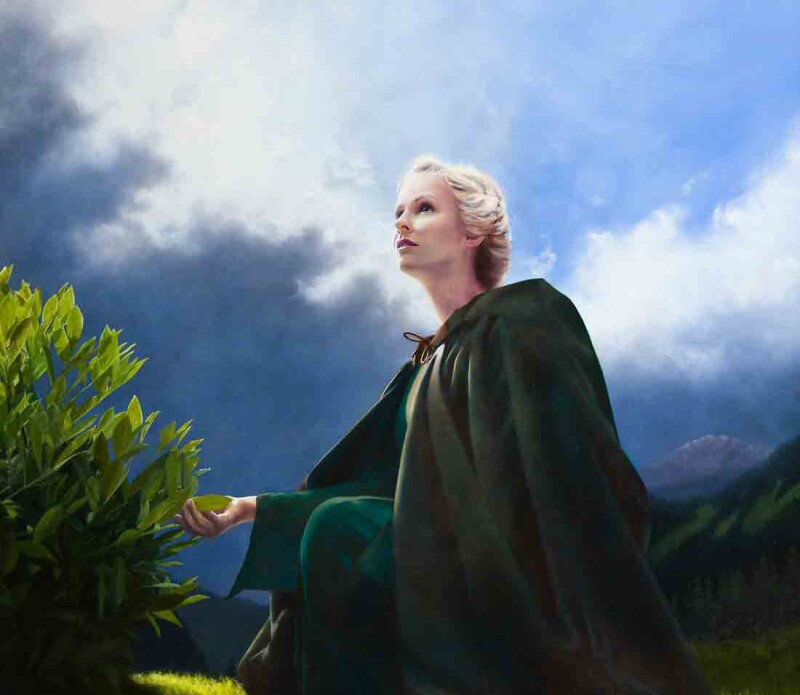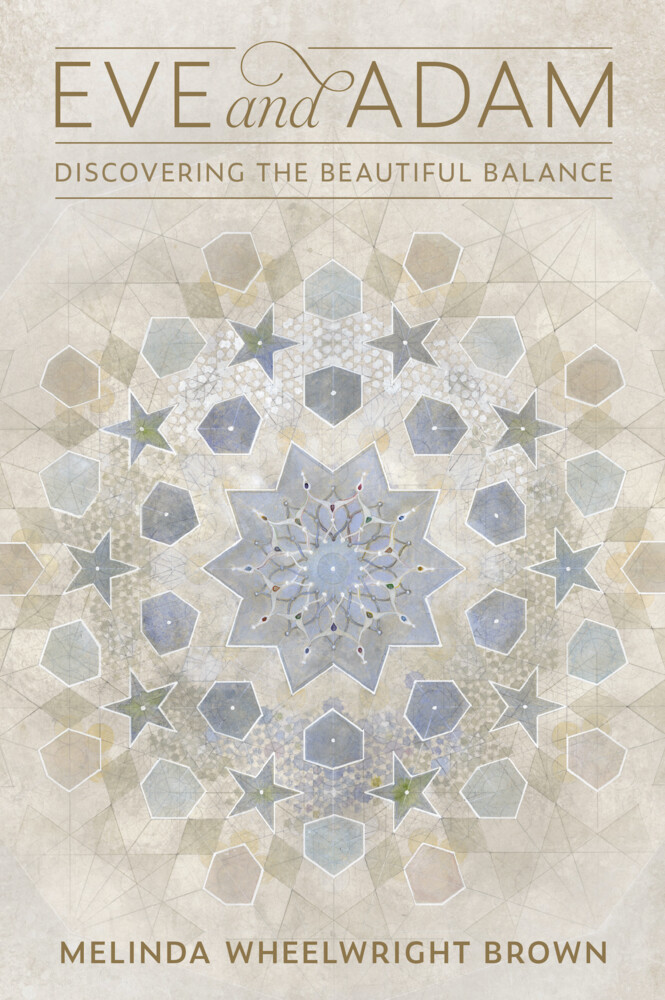The story of Adam and Eve is humanity’s first story—and even though it’s one of the most well-known stories throughout all of Christendom, there are many misconceptions that swirl around it, particularly concerning Eve. Melinda (Mindy) Wheelwright Brown noticed these misunderstandings and her book, Eve and Adam, is devoted to helping Latter-day Saints understand Eve and her infamous decision. “I want to help people recognize that faithful courage is at the core of Eve's very brave choice to open the doorway to mortality for all of us,” Melinda says.
In an episode of the All In podcast, Mindy discusses what she’s learned about Eve, Adam, and the Garden of Eden.
Listen to the interview with Mindy Brown in the player below or by clicking here. You can also read a full transcript here.
This excerpt has been edited for clarity.
Morgan Jones: What is it about the story of Adam and Eve that has a transformative power if we allow ourselves to internalize it?
Melinda Brown: Well, I guess the way that I would explain that, kind of in a nutshell version [is] that I think we often start at the middle of the story, say where [Eve] partakes of the fruit, and then go forward from there, look at them leaving the garden, look at what their life then looked like and maybe how they had to work toward repairing that situation, right? That’s kind of the general, worldly view of that story.
We are so blessed with the restored gospel of Jesus Christ and the continuing, ongoing restoration of that gospel to have the first half of the story as well. And I think where other people look at this and say, “This is a metaphor for all of our lives because we all sin, they sinned, and they got it patched up thanks to a Savior, it’s all better, it’s going to be fine,” we can start at the beginning of the story and say that this is the big picture. This is the plan. This is a story about agency. And for agency to really be effective, we’ll have to have a Savior, we have to have kind of the twin partner of agency which is repentance, which Jesus Christ makes possible.
And if we kind of overlay our story over that first half of the story that we each made the same decision in the councils in heaven, that in pre-mortality, we each had to make the decision, do we want to trust our Elder Brother? Can we trust Jesus Christ enough to venture into this unknown? But I think we probably did know that it was going to be very hard. …
And I think we’ve really had to tap into trust at that point. I think that’s the very beginning of the story of trusting our Savior, that He could make all of this work to our good. And to me, that’s the beauty of this story that applies to all of us. And that’s where I’d love to see our focus shift to a little bit more than just seeing it as a story of sin and repentance into mortality. I like the first half and I think it informs why it isn’t a story about sin, that the transgression involved is very different, it’s not your typical sin by any means. It was a crossing of a threshold that was done by choice because of the beautiful gift of agency.
Morgan Jones: Thank you. That’s super helpful. Another statement that I wanted to touch on in the book [is this:] you said, “For millennia, the world has dismissed the story of Adam and Eve as simply a choice between good and evil with the obvious conclusion that Eve chose evil. But on much closer inspection, we can discover and lead others to discover that the choice was in fact between certainty and uncertainty, security and risk, fear and faith. Eve’s most remarkable choice had everything to do with stagnation versus progress, hers was a decision to trust God.” And you just kind of touched on this idea of trust. But can you explain how you learned that hers was a decision to trust God and what that can mean for us?
Melinda Brown: I think one of the tricky parts with this story is it’s been simplified so much, in the broadest sense, I’m talking the historical sense. It’s come down to a story that can be told in like three sentences, right? It's just very straightforward and people simplify it that way. And in that simplification, I think we lose sight of the possibility that they may have been in the garden for eons. Like we have no idea of what that timeline looked like. We have some sense of the chronological order that things happened because of how the story is told in scriptures and through revelation and modern-day prophets and things. But we don’t have a sense of if the choice came immediately on their being introduced to the garden, or if it was ages later after tons of tutoring and conversation and learning with angelic messengers, their heavenly parents, you know, there’s a lot of unknown there, we just don’t know.
And I took a lot of comfort, for me personally, [from] some of Elder Holland’s writings. [They] really meant a lot to me as he describes that [Eve and Adam] weren’t being taught trivial things while they were in the garden, that they were learning the gospel. And he even uses the phrase, “in its entirety.” I think that’s something that the rest of the world doesn’t even consider that she knew. Because we think of them as being as in an innocent state, but there’s a difference between clueless and innocent, right? They had plenty of so-called book learning, we could think of it, but no street smarts. They just hadn’t experienced life yet, mortality and the workings of a body and spirit together, which creates some unique challenges too that they were totally unfamiliar with.
So my personal opinion that helps me feel peace with the issues that we started out discussing is that she had a very good sense of the big picture before she made this choice. I think the issue of these two commandments that they had been given, that a lot of people term “conflicting commandments.” And that's where so many people get hung up on this story. And they feel like there’s this gross injustice in it right from the get-go, because how is that fair that they were given these two mutually exclusive commandments?
I think, really the meaning behind that is so recognizable in our own lives because we are constantly presented with two mutually exclusive options. Sometimes it’s two great choices that we have to decide between, sometimes it's two rotten choices that we have to decide between. Sometimes it’s just a matter of some that are better than others in various ways, and it’s weighing all the pros and cons and having to come to that decision. And I think, to me, the beauty of the way they were presented with these two mutually exclusive options is it made it 100% about their agency and their choice. They had to choose one or the other because, by virtue of not choosing, they were making a choice, you know, they were both a choice. And they needed to know that it was their decision, so that it wasn’t clear cut to them so they couldn't look back later and think, “Well, I knew what our heavenly parents wanted us to do and so we did that even though we weren’t comfortable yet.” There had to be this ambiguity there that they needed to decide when they were ready to go ahead.
And I don’t think that they were clueless moving ahead. I think they had a sense of how hard it would be, and that there would be a Savior to help them through this, that it was all going to work out because they knew and trusted our Savior, Jesus Christ. We know His is an infinite atonement, it's an infinite sacrifice He made for us. He was our Savior at the very beginning as much as He will be our Savior at the end.
Eve and Adam: Discovering the Beautiful Balance
Eve and Adam offers a fresh and insightful perspective into the perfect plan of happiness. With clarity and careful thought, it presents a solid case for the necessity of a firm understanding of the honor due to our glorious Mother Eve as well as Father Adam. Simultaneously, Eve and Adam provides an opportunity for deep pondering and reflection on how our mortal experiences, coupled with our Savior's support, can facilitate the progress and learning needed to exalt each of us day by day, one step at a time. Eve's and Adam's story, then, deeply matters to ours.


